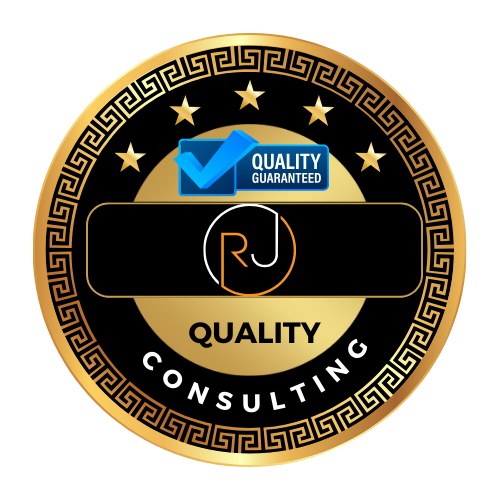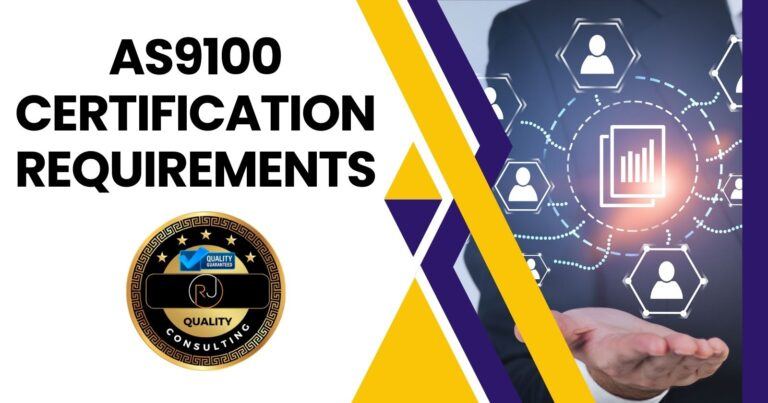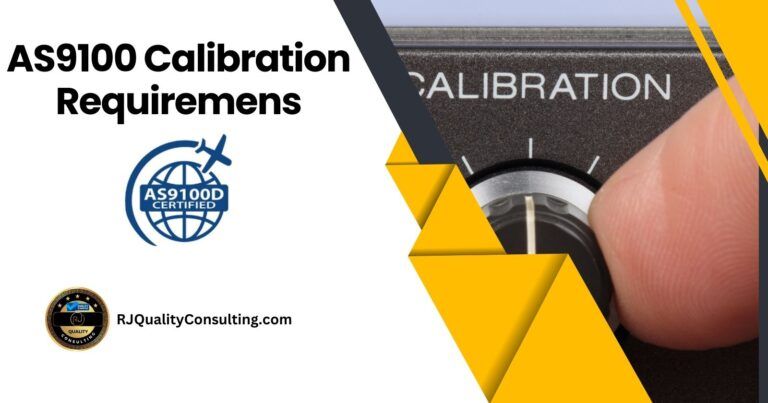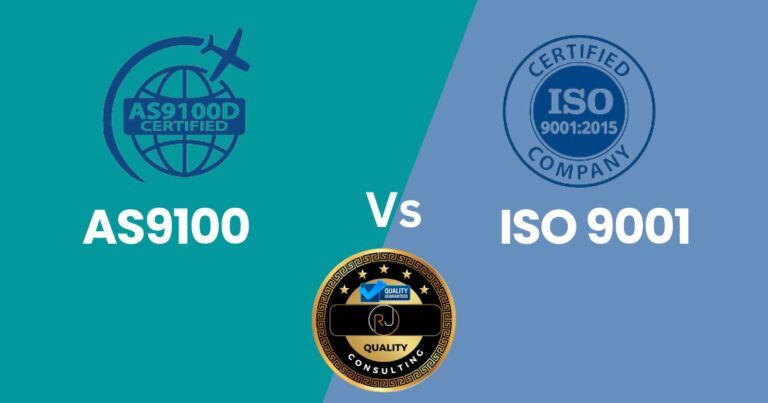Top Benefits of AS9100 Certification
If you’re part of the aerospace sector, you’ve probably heard of AS9100. It’s a standardized quality management system tailored specifically for the aerospace industry. Now, let’s get a sense of what this means and discuss the top benefits of AS9100 Certification. AS9100 is essentially a set of requirements and guidelines designed to ensure that aerospace suppliers deliver high quality products that are both reliable and meet stringent safety standards.
Why is this important? Well, when you’re flying at 35,000 feet, every component of the aircraft must function flawlessly. Failures aren’t an option. This is why AS9100 plays a pivotal role in not just individual companies, but across the entire aerospace supply chain. It promotes an environment where everyone speaks the same language when it comes to quality and safety.

Adopting AS9100 isn’t just about compliance. Of course, it checks those boxes, aligning with various regulatory demands and customer needs. But it’s also a statement by a company that they take quality seriously, that they’re committed to excellence in every product that comes off their line, and every service they provide.
Now, this isn’t merely about ticking off checklist items and passing audits. The real beauty of AS9100 lies in its comprehensive approach to quality management that permeates all levels of an operation. This means everything from how products are designed and engineered to how they’re manufactured, tested, and eventually, how they’re used in the real world. It covers the full product lifecycle.
So, you might wonder, what comes next after understanding the significance of AS9100? That’s where we segue into the perks this certification can bring to an organization. You’re going to find out about how AS9100 can enhance product quality, streamline operations, and fundamentally change the game for aerospace companies looking to soar above the competition and of course drive improvement.
Top 4 Benefits of AS9100 Certification for Aerospace Companies

I’m going to take you through the 4 key benefits that aerospace companies gain when they achieve AS9100 certification. This isn’t just about meeting regulatory demands; it’s also about enhancing a company’s overall performance and credibility in a very competitive industry.
Quality Enhancement
With AS9100 certification, aerospace companies demonstrate their commitment to producing parts and services that meet the high standards required for aerospace applications. This results in a reputation for reliability, which is crucial when safety is on the line.
Market Advantage
In an industry where every contract is a high-stakes game, showing that your quality management system is AS9100 certified can set your company apart and open doors to new business opportunities.
Operational Efficiency
AS9100 certification requires companies to streamline their processes to reduce waste and increase productivity. These aren’t just short-term gains; they’re changes that can drive long-term benefits and cost savings.
Continuous Improvement
An AS9100-certified organization is expected to adopt a culture of ongoing assessment and enhancement of processes. This approach not only supports current project success but also paves the way for future innovations.
AS9100 vs. ISO 9001: Understanding the Differences and Benefits

You’re going to find out about the key differences between AS9100 vs ISO 9001. Although both are management system standards, AS9100 includes all of the requirements of ISO 9001, along with additional aerospace-specific quality and safety measures. I’m here to help you understand why this distinction is critical for aerospace companies.
The AS9100 standard is designed with the aerospace sector’s unique needs in mind. This isn’t just about meeting baseline quality management requirements; it’s also about adhering to stringent regulations that are specific to aerospace manufacturing and service. By incorporating elements like the management of product safety and the reliability of parts, AS9100 ensures that companies are fully prepared to meet the sector’s exacting demands.
If you want to get into the nitty-gritty, AS9100 certification boosts your aerospace quality management system by focusing on risk management, design, development, and product realization processes. These stringent measures are necessary for the potentially hazardous environments products are subjected to.
Choose something that resonates with you: would you prefer having a basic foundation of quality processes, or a comprehensive system that addresses every aspect of aerospace excellence? That’s the strategy I like to leverage when explaining the benefits of AS9100 over ISO 9001. AS9100 is tailored to elevate a company’s quality management to meet the safety, reliability, and compliance demanded by the aerospace industry.
Navigating the AS9100 Certification Process: Timeline and Steps

I’m going to give you a clear picture of what it takes to get AS9100 certified. This isn’t just about completing forms; it’s a comprehensive process designed to ramp up your quality management system to meet aerospace sector requirements.
The certification journey typically starts with a thorough gap analysis to understand where your current quality management system stands in relation to AS9100 standards. You’re going to commit time towards developing procedures, training staff, and implementing necessary changes.
It’s usually a marathon, not a sprint. On average, the process can take anywhere from 6 to 12 months, depending on the size and complexity of your company. Now, that might seem lengthy, but keep in mind that this includes the time needed for planning, implementation, internal audits, and the certification audit itself.
Throughout the certification process, it’s crucial to maintain open lines of communication with a certification body. They’re pivotal in guiding you through pre-assessment audits, which can pinpoint potential roadblocks, saving you time and hassle later on.
Choose something that resonates with you, as each certification body has its unique strengths, and you want one that aligns well with your company values and expectations. Cap it all off with the final audit, and if you’ve met all the requirements, you’ll receive your AS9100 certification.
Remember, your first attempt doesn’t need to be your last. If there are findings or non-conformities, you can always rectify them and request a follow-up audit. Resilience is key in achieving certification.
After outlining the steps and timeline to certification, the following section will address common questions to help clear any lingering doubts about AS9100. Stay tuned, as this will bring additional clarity to why the commitment to this process is a strategic move for aerospace entities.
Frequently Asked Questions About AS9100 Certification

Now, you’ve got a pretty good handle on the AS9100 certification and how it can turbocharge an aerospace organization. But you probably have a few questions bouncing around in your head. Let’s tackle them head-on.
What are the benefits of being AS9100 certified?
One word: trust. Your stakeholders, customers, and even your team will have trust in the quality and safety of your aerospace products and services. Plus, you’re looking at better market access, streamlined operations, and invariably, a healthier bottom line.
What is the Purpose of AS9100?
Clarifying the primary purpose of implementing AS9100 in an organization boils down to one thing: excellence in aerospace quality management. It’s about ensuring that every cog in your organizational machine is working to deliver the highest possible standard in the industry.
Is AS9100 Better than ISO 9001?
Addressing whether AS9100 is more advantageous than ISO 9001 for aerospace entities is straightforward: it’s a resounding yes for those in aerospace. AS9100 encompasses all of ISO 9001’s requirements with additional aerospace-centric enhancements. It’s ISO 9001 with a jetpack.
How Long Does It Take to Get AS9100 Certified?
Insights into the average duration for acquiring AS9100 certification can vary, but think in terms of months, not weeks. You’re aiming for a marathon, not a sprint – preparation, audit, correction, and follow-up. But the end result? Absolutely worth the time invested.
I hope this guide empowers you with the knowledge you need to navigate the AS9100 certification path successfully. Remember, it’s about raising the bar for your business and shooting for the stars in terms of quality and reliability. If you ever feel overwhelmed, just take it one step at a time. You’re on your way to not just meeting industry standards but exceeding them.
🕒 Book Your Free 45-Minute Consultation
Have questions about ISO/IEC 17025 or ISO 9001 implementation or accreditation? Schedule a free 45-minute consultation with me to discuss your Company or laboratory’s needs and how we can achieve compliance together.
Schedule Your Consultation



